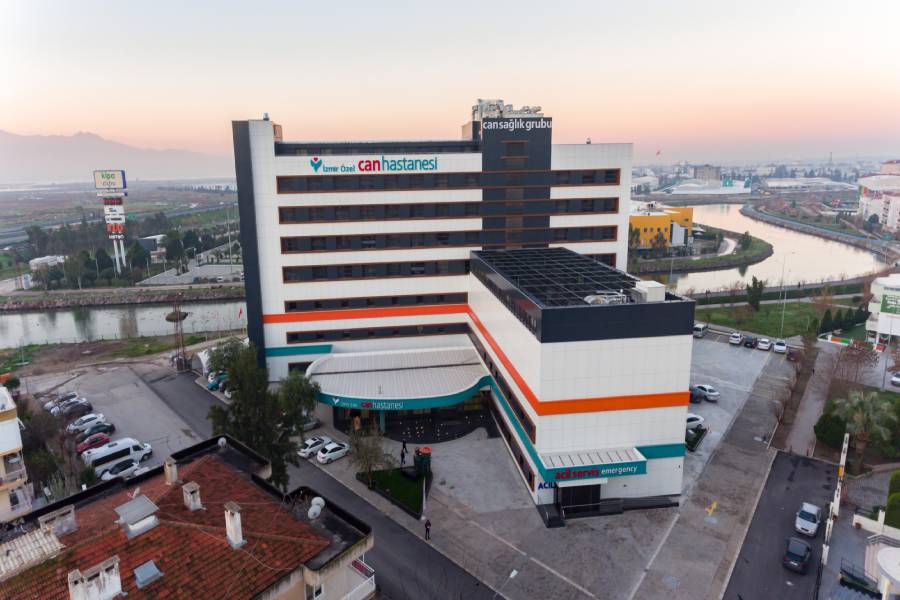Do’s and Don’ts After Lasik Eye Surgery?
Categorised in: Genel, HEALTH GUIDE
Published Date:
Lasik eye surgery in Turkey can transform your life, offering clearer vision and freedom from glasses or contact lenses. To ensure the best recovery and results, following your surgeon’s specific do’s and don’ts is essential. Proper care and adherence to guidelines can reduce complications and aid in a smooth healing process.
In the first days and weeks after surgery, your eyes need extra care. By following recommended practices, you can greatly improve your chances of a successful outcome. This will allow you to enjoy the benefits of improved vision.
How to Lasik Eye Surgery Recovery?
Recovering from Lasik eye surgery is a gradual journey that demands patience and diligent care. Right after the surgery, you might feel some discomfort. This could include mild pain, irritation, and watery eyes. These symptoms are normal and usually fade within a few hours to days.
It’s vital to adhere strictly to your surgeon’s post-surgery instructions. This includes attending all scheduled follow-ups, using eye drops as prescribed, and avoiding eye-straining activities. Such steps help prevent infection and ensure a smooth recovery.
The time it takes to see improvements in vision varies among individuals. Most notice a significant change in their vision within 24 to 48 hours post-surgery. Yet, it may take weeks or even months for the eyes to fully heal and stabilise.
In the initial days after surgery, vision fluctuations, light sensitivity, and halos or glare around lights are common. These effects usually lessen as the eyes heal. It’s crucial to avoid eye rubbing, as it can dislodge the corneal flap and slow down recovery.
As you move through the healing phase, your vision will gradually improve. Many patients achieve 20/20 vision or better within a few weeks. Remember, though, that everyone’s recovery pace is different. Some might take longer to reach optimal vision.
Throughout your recovery, maintaining good eye hygiene is key. Protect your eyes from dust and debris, and avoid swimming or using hot tubs until cleared by your surgeon. By following these guidelines and attending regular check-ups, you can ensure a smooth and successful recovery.
Essential Do’s for Post-Lasik Care
Proper post-lasik care is vital for a smooth recovery and the best results. Adhering to the eye drop regimen prescribed by your surgeon is crucial. These drops prevent infection, reduce inflammation, and keep your eyes moist. It’s important to use them as directed, even if your eyes feel fine.
Wearing protective eyewear is also key. Your surgeon will give you special shields or goggles for the first few days. These prevent accidental rubbing or pressure on your eyes during healing. When outdoors, wear sunglasses with 100% UV protection to protect against sun rays and debris.
Attending all scheduled follow-up appointments is essential. These visits allow your surgeon to monitor your healing, check your vision, and address any concerns. You’ll have appointments 24 to 48 hours post-procedure, followed by regular check-ups over several weeks and months.
Rest your eyes and avoid strenuous activities during the initial recovery. This means no swimming, hot tubs, or contact sports for at least a week. Also, avoid dusty or smoky environments to prevent eye irritation. When showering or washing your face, be careful not to get soap or water in your eyes. By following these guidelines, you’ll be on the path to a successful recovery and clearer vision.
Crucial Don’ts During Lasik Recovery
Recovering from Lasik eye surgery demands careful attention and adherence to guidelines to ensure proper healing and avoid complications. It’s vital to know which activities and habits to avoid. Engaging in certain behaviours can lead to lasik recovery mistakes, potentially hindering your progress and causing setbacks.
Eye rubbing is a major no-no during Lasik recovery. It might be tempting to rub your eyes if they itch or feel uncomfortable. However, doing so can dislodge the healing flap, leading to serious complications. It’s crucial to resist the urge to rub your eyes and use the prescribed eye drops instead to soothe any irritation.
Swimming is another activity to avoid during this period. Whether in a pool, lake, or ocean, water can introduce bacteria, increasing the risk of infection. It’s wise to wait at least a week or until your surgeon clears you before engaging in water activities again.
Staying away from dusty or dirty environments is also essential. Your eyes will be more prone to irritation and infection during healing. So, it’s best to limit exposure to debris and pollutants. If you must be in a dusty area, wear protective eyewear to shield your eyes.
Applying cosmetics around the eyes should also be avoided during Lasik recovery. Makeup products can harbour bacteria, raising the risk of infection. It’s wise to wait at least a week before resuming eye makeup use and to discard any old products to prevent contamination.
Finally, avoid driving until your surgeon gives you the green light. Your vision may fluctuate during the initial recovery period, making it unsafe to drive. Arrange for alternative transportation and don’t miss any follow-up appointments with your surgeon to ensure your recovery is on track.
By avoiding these crucial don’ts during Lasik recovery, you can reduce the risk of complications and promote optimal healing. Remember, patience and strict adherence to your surgeon’s guidelines are essential for achieving the best possible outcome from your Lasik eye surgery.
Managing Discomfort and Side Effects
Lasik eye surgery is generally safe and effective, yet patients may face some discomfort and side effects post-surgery. Dry eyes are a common issue, causing irritation, itching, and a gritty sensation. To ease this, patients should use preservative-free artificial tears as advised by their surgeon. Drinking plenty of water and taking omega-3 supplements can also help alleviate dry eye symptoms.
Light sensitivity is another frequent side effect. It can make it hard to be outdoors or in bright environments. Wearing sunglasses with 100% UV protection can help reduce light sensitivity and protect the eyes from harmful UV rays. Polarised lenses can also reduce glare and improve visual comfort.
Vision fluctuations are common in the first few weeks post-surgery. This can include blurred or hazy vision, especially when moving between different lighting conditions. These fluctuations are usually temporary and will settle as the eyes heal. Patients should avoid straining their eyes and take regular breaks when doing visually demanding tasks.
Glare and halos around lights, especially at night, can be a challenge. These side effects typically fade within a few months. However, patients should be cautious and avoid driving at night if they feel uncomfortable or have trouble seeing.
If post-lasik discomfort or side effects persist or worsen, patients should contact their surgeon immediately. Regular follow-up visits are essential for monitoring the healing process and addressing any concerns. By working closely with their eye care professional and following post-operative instructions, patients can manage discomfort effectively and ensure a smooth recovery after Lasik eye surgery.
Maintaining Eye Hygiene Post-Lasik
Proper eye hygiene is vital for a smooth recovery after Lasik surgery. It helps prevent infections and aids in healing. Start by cleaning your eyelids with a fresh, clean towel or cotton pad. Use sterile water or a doctor-recommended cleanser. Be gentle and avoid applying pressure on the eyes.
Touching or rubbing your eyes with unclean hands can introduce bacteria. Always wash your hands with soap and water before touching your eyes. When drying your face, use a fresh towel and gently pat the skin around your eyes. Avoid direct contact with your eyes.
Watch for signs of infection like redness, swelling, discharge, or pain. If you notice these symptoms, contact your eye doctor immediately. Following good eye hygiene practices and your doctor’s instructions closely can reduce complications. This ensures a smoother recovery after Lasik surgery.
Resuming Daily Activities After Lasik Eye Surgery
After Lasik eye surgery, patients look forward to getting back to their usual activities. Yet, it’s vital to give your eyes time to heal and follow your surgeon’s advice. Most can go back to work a few days post-surgery, depending on their job. Jobs that require heavy physical activity or exposure to dust may need more time off.
It’s wise to wait at least a week before engaging in non-contact sports and light exercises. Activities like contact sports or swimming should be avoided for several weeks to prevent injury or infection. Protecting your eyes from sweat, dust, and accidental impacts is crucial during this period.
In today’s digital world, concerns about screen time after Lasik are common. While immediate rest is advised, most can use digital devices within a day or two. It’s key to practice good eye care, like taking breaks, blinking often, and adjusting screen settings to avoid eye strain. As your eyes heal, you can gradually increase screen time, being cautious of any discomfort or vision changes.
As you start your daily activities again, make sure to keep all follow-up appointments with your eye surgeon. They will check on your progress and offer tailored advice on returning to your normal routine. By adhering to your surgeon’s instructions and maintaining eye health, you can ensure a smooth recovery after Lasik eye surgery.

Why British Citizens Choose Turkey for Health Services?
British citizens are increasingly opting for Turkey when seeking medical treatments due to a combination of superior healthcare services, affordability, […]

Psychological Effects of Genital Aesthetics on Body Image
In a society increasingly focused on physical perfection, the realm of genital aesthetics has surfaced as an area of both […]

Common Concerns About Genital Plastic Surgery
Genital plastic surgery, a burgeoning field within the realm of cosmetic enhancements, has witnessed a notable surge in popularity. Procedures […]

In which cases is labiaplasty necessary?
Labiaplasty, a procedure that has recently garnered significant attention, involves the surgical reduction of the labia minora. This operation, also […]

Healthy Recovery Process After Genital Aesthetic Surgery
Day Things To Do Things to Avoid 1-7 Days – Bed rest – Using medications recommended by the doctor – […]